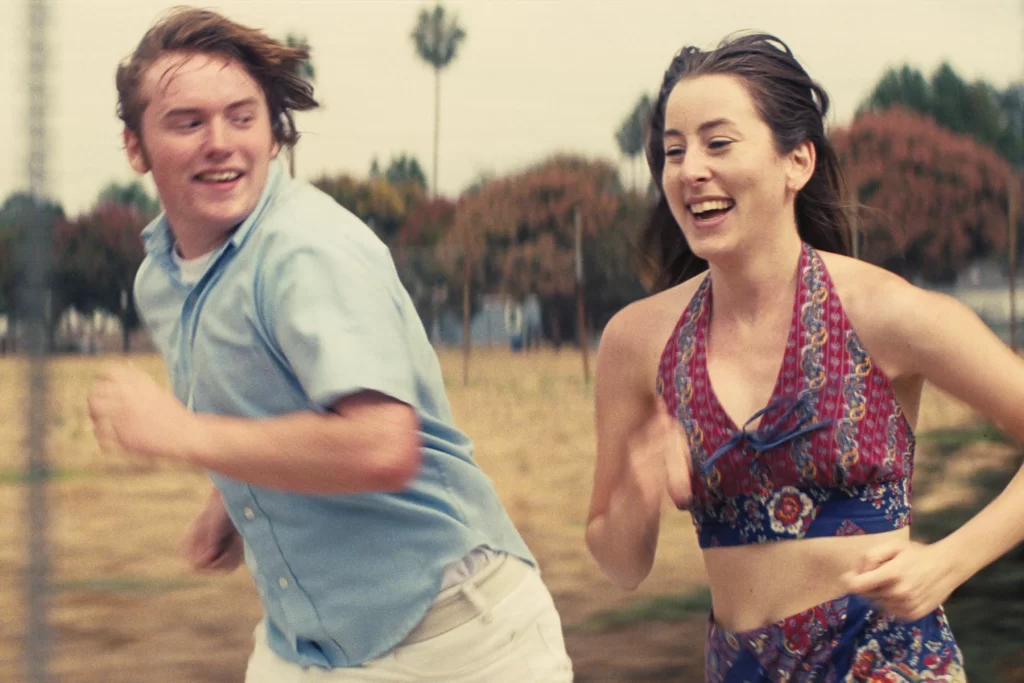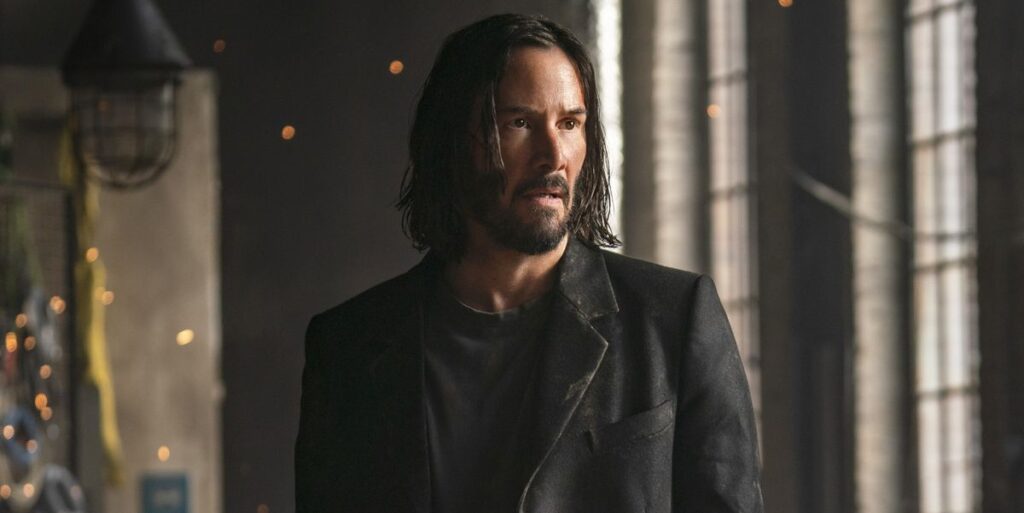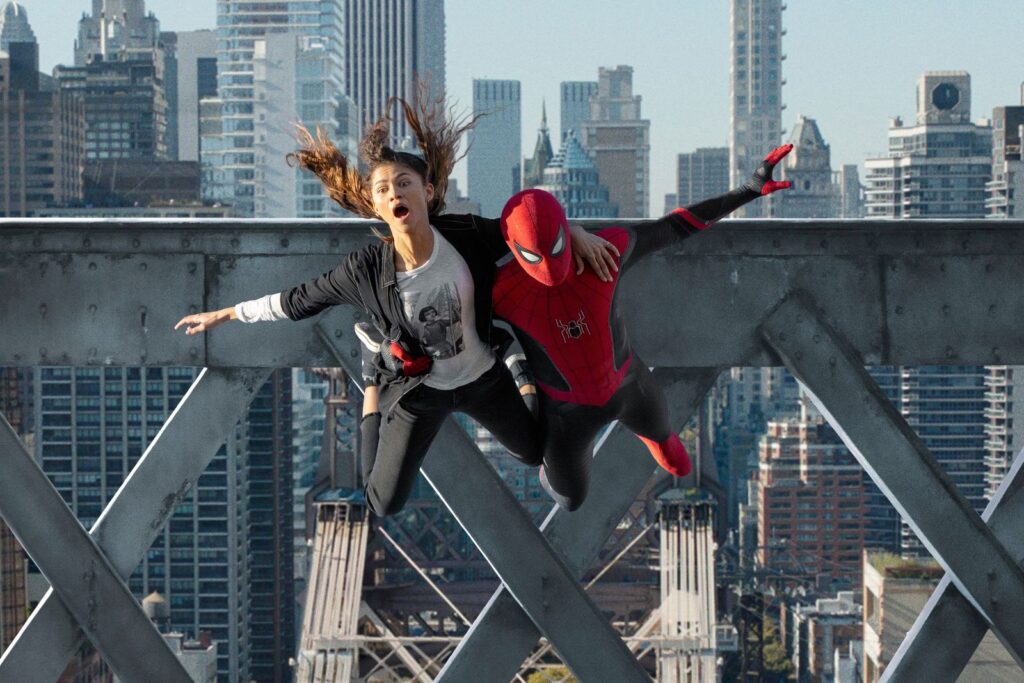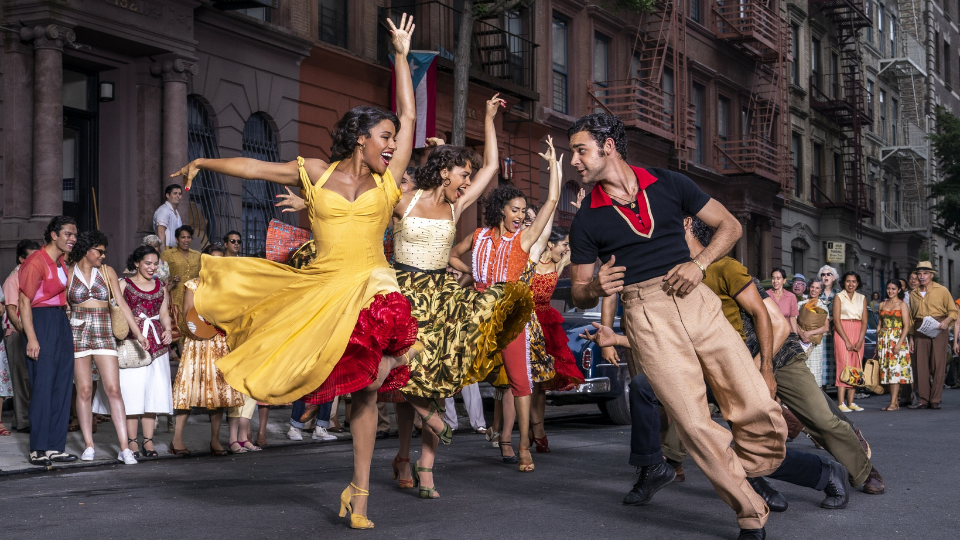Don’t Look Up: May the Planet Jest in Peace
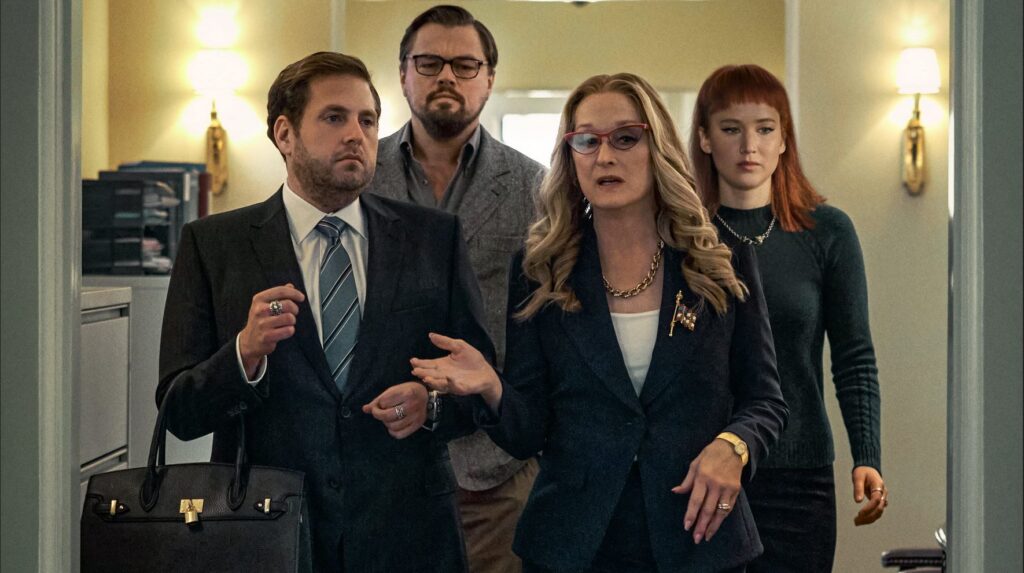
Are you familiar with the scientific phenomenon known as climate change? If not, then you might find Don’t Look Up, the new star-studded political satire from Adam McKay, to be profoundly eye-opening. Doubtless, McKay wishes it to provoke outrage as well as laughter; this has been his shtick ever since The Other Guys’ closing credits featured a flurry of graphics illustrating the mechanics of a Ponzi scheme. It isn’t a critic’s job to predict how an audience will react, but I suspect that most people who possess rudimentary knowledge of global warming (and I, to be clear, am no expert) will greet McKay’s latest effort not with howls of fury but with snorts of derision. I suppose Don’t Look Up is a passion project, in the same way that certain third graders can be passionate when they’re arguing for a snow day.
It feels somewhat mean to criticize a movie that carries such an urgent message, even if the delivery of that message is fairly mean. To be sure, anger is an appropriate response to society’s collective shrug toward its own existential threat, and it’s undeniably maddening that the fact of climate change is still framed as a political issue—a polarizing debate in which #BothSides present meritorious arguments. Yet agitprop tends to be more persuasive when it’s targeted; here, McKay paints with such a broad brush that he sacrifices precision. In addition to attempting to skewer the electoral establishment—embodied here by Meryl Streep as a coldly calculating, vaguely Trumpian president, flanked by an army of flunkies and an Oedipally charged chief of staff (Jonah Hill)—he also lampoons greedy tech profiteers (Mark Rylance plays an awkward genius designed to recall Mark Zuckerberg and Elon Musk), militaristic jingoism (Ron Perlman pops up as a demented former general), mainstream media (Cate Blanchett and Tyler Perry play fatuous morning-show anchors), celebrity culture (Ariana Grande and Scott Mescudi suck up some oxygen as vain pop stars), millennial slackerdom (Timothée Chalamet receives a measure of dignity as a skateboarder), and social-media vacuity (fake memes routinely spring up). It’s a lot—the film clocks in at a baggy 145 minutes—and that muchness seems to be an element of McKay’s broader point. If you aren’t part of the solution—that is, if you don’t subscribe exactly to his hazy set of principles, which I guess could be described as Pro-Science—then you’re part of the planet-killing problem. Read More

